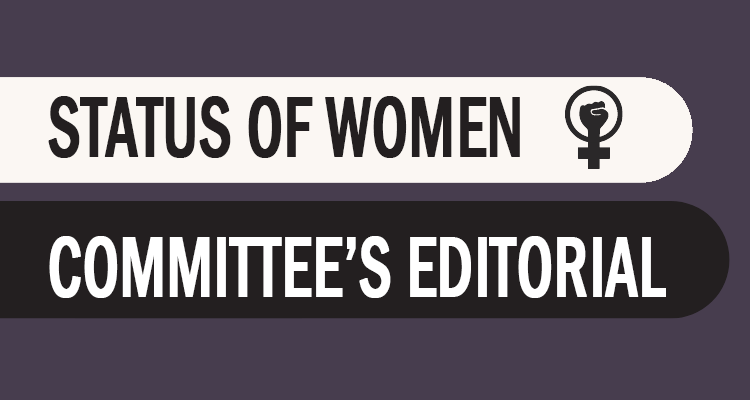
Of ratios and women
As we speak, being a healthcare professional is quite a challenge, whether because of the work overload, staff shortage, difficult conditions, or lack of recognition of our expertise and the importance of our role for society. The several hundred ministerial orders and decrees, passed over the last 2 years by the government, are a good example. By ignoring collective agreements to such an extent and for such a long time, we can see that the government prefers to assume exceptional and temporary powers rather than tackle the fundamental problem. The decision-makers rely on guardian angels, most of whom are women, who have their heart in the right place and who would do this job as a “vocation”. They rely on this dedication, so the healthcare professionals always do more, despite constantly deteriorating working conditions.
In light of this, the FIQ and FIQP are demanding more consideration for the healthcare professionals and for the population who are entitled to safe care. To succeed, one of the solutions advocated for a long time is a law guaranteeing safe ratios.
What is a healthcare professional-to-patient ratio?
Implementing safe healthcare ratios means there will always be a minimum team of healthcare professionals for a group of patients with similar health problems. This minimum can then be increased based on the patients’ needs. Always having this minimum allows the healthcare professionals to provide all the care required by their patients.
Ratio projects were carried out in Québec in 2018-2019 and the healthcare professionals who participated were all unanimous: they really improved their working conditions and the quality of care they were able to provide. Unfortunately, because these ratios were not guaranteed by a law, the institutions have since ended these initiatives.
Why have the FIQ and FIQP made ratios their flagship battle?
Healthcare professional-to-patient ratios are good for everyone: the population, healthcare professionals, caregivers, particularly for women. It is THE best structural measure for improving all the working conditions of the FIQ and FIQP members:
- 90% of healthcare professionals are women. Improving the healthcare professionals’ working conditions is improving the condition of a significant number of women.
- The poor organization of the health network hurts the women working in it, and also the women who use the services. En effet, quand l’État se désengage et sabre dans les services de santé, ce sont généralement les femmes qui doivent compenser en s’occupant de leurs proches, puisque ce sont souvent elles qui agissent comme proches aidantes ou qui s’occupent des besoins de santé de leur famille. (In fact, when the State disengages and slashed health services, it is generally women who must compensate by looking after their loved ones, because it is often them who act as caregivers or who look after their family’s health needs) (free translation) For example, lorsqu’un établissement de santé fait appel aux proches aidant-e-s pour libérer des lits d’hôpitaux, (when a health institution relies on caregivers in order to free up hospital beds) (free translation) it is the women in the patient’s entourage who need to find solutions to compensate.
As such, demanding health ratios can be a feminist mission!
The FIQ and FIQP are relying on ratios to combat staff shortages and their adverse effects on working conditions. Safe ratios have the power to stop the vicious cycle of deteriorating working conditions, which causes the exodus of healthcare professionals, which causes the working conditions to deteriorate even more, and so on.
Therefore, by implementing safe ratios, this would have the effect on healthcare professionals of:
- Fostering the stability of care teams;
- Reducing job insecurity;
- Creating more attractive positions;
- Upgrading professional practice and maximizing the contribution of all job titles.
In turn, these new conditions would greatly improve the quality of life of a majority of women who could:
- Practice a valued profession, where all the care needed by the people is provided and where professional competence is maximized;
- Take on a more stable mental and emotional load (for example, not have the impression of having to learn everything all over again by being offloaded to who-knows-where, having to integrate a new team and take care of new patients without having a say in the matter);
- Have better family-work-studies balance, not only thanks to more stable teams and schedules, but also thanks to a mental and emotional load linked to work which encroaches less on personal life.
Political will is necessary for establishing in Québec what has been successfully implemented elsewhere in the world, including Australia and California, instead of clinging to illusions of privatization as a quick fix, like flies in a window.
Given its reluctance to endorse the project and to create a law on ratios, it seems that patient safety is not a government priority. And that should outrage the entire population of Quebec!
Moreover, on April 29, 2022, 12 Québec civil society groups, from all backgrounds, joined their voices to demand the government implement a law on safe healthcare professional-to-patient ratios. By signing a petition, the organizations are demanding the government stop hiding behind pretexts and get a grip on the management of the network by implementing ratios.
To learn more about safe ratios and sign the petition in favour of ratios, go to ratiosensante.org.
Amélie Barrette for the Status of Women Committee